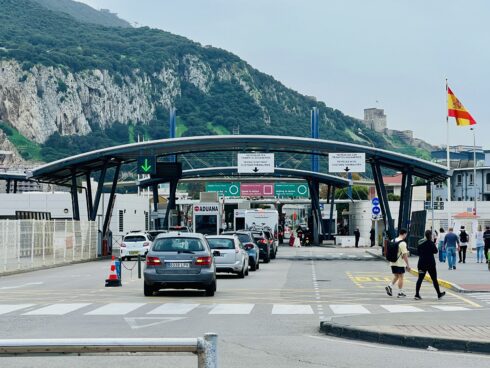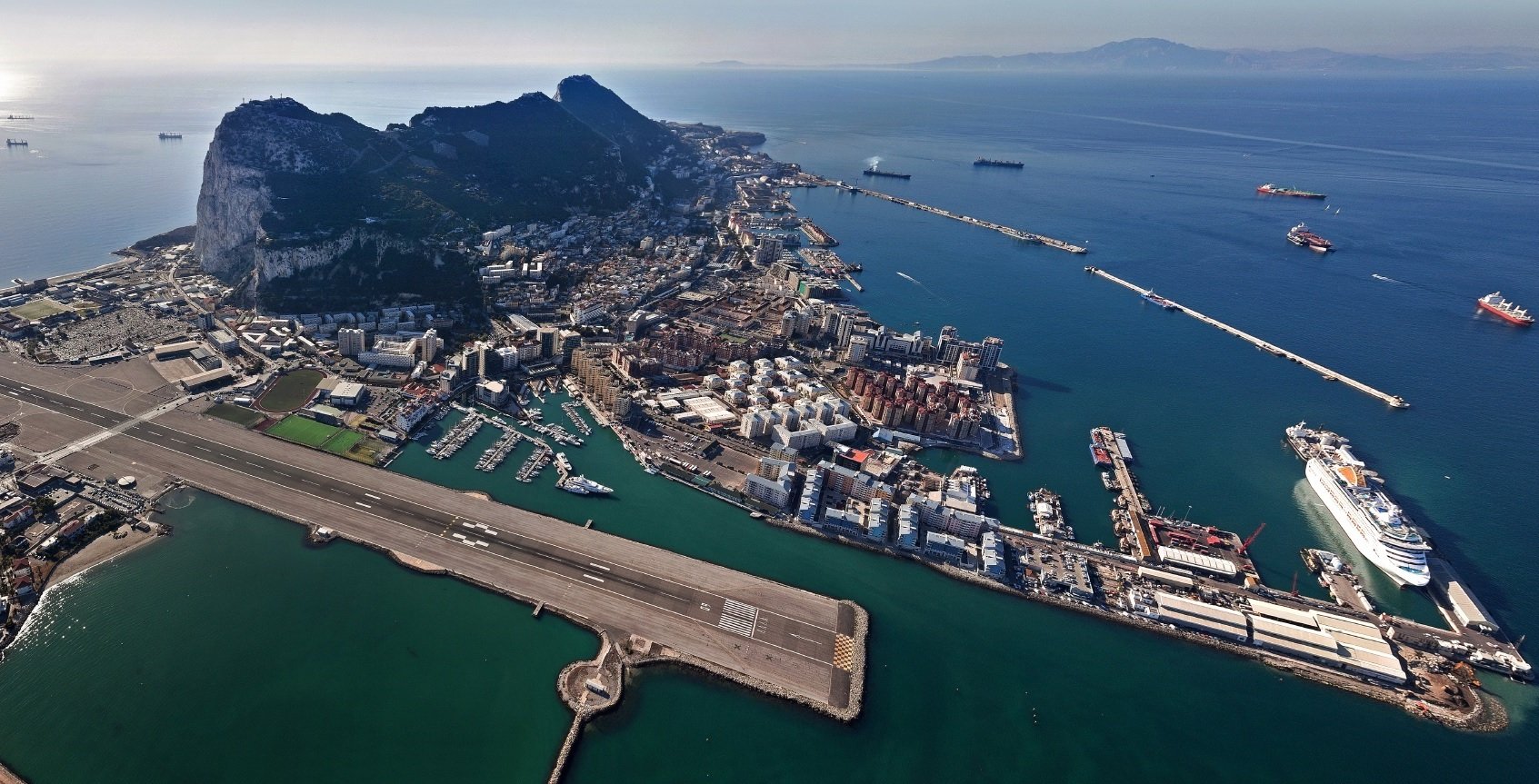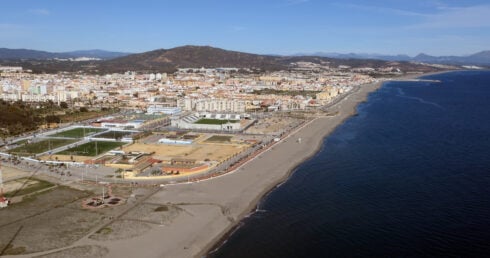AFTER months of detente, low-simmering tensions between Gibraltar and Spain are threatening to come to the boil once again – just as a treaty is within sight.
Despite the triumphal celebrations of the long-awaited EU–UK agreement on Gibraltar struck on June 11, the document is not yet signed.
Teams of negotiators and their lawyers are still thrashing out the final text, which will then need to be ratified by both the Council of the European Union and the UK Parliament – a process that will still take several months.

Last week, Spain’s parliament decided to throw a mild spanner into the works by approving a non-binding motion tabled by far-right party Vox to reject the Gibraltar agreement.
It even went so far as to call for the government to ‘recover Spanish sovereignty over the Rock’ – the unwelcome diplomatic equivalent of a bloodied jab to the nose.
But the recalcitrant vote – which got 20 ayes in favour to 14 against – has not come as an isolated incident.
It has coincided with a flurry of blows seemingly designed to stir up old wounds just as the treaty process reaches a crescendo.
The long-sought agreement ought to put to bed a series of simmering disputes between Spain and the British Overseas Territory and pave the way for a ‘zone of shared prosperity’ between the two when it is finally ratified.

The proposals should see the removal of the physical border with La Línea and establish common customs, fiscal and security rules.
So it comes as a surprise that a series of the ‘greatest hits’ of the most perennial and thorny of those disputes is currently being orchestrated both behind the scenes and in public.
The tensions kicked off rather mildly last month with a gradual ratcheting up of the interminable queue times to enter – and now leave – Gibraltar; a common lever of pressure the Spanish side can pull with plausible deniability.
The Association of Spanish Workers in Gibraltar complained on October 27 of ‘long and unjustified queues’ to get out of the Rock stretching over one hour.
Spokesman Juan José Uceda blamed the delays on ‘meticulous checks of ID cards and passports for every worker’.
He added: “It’s not the same to check one in ten people as it is to check everyone. The result is immediate gridlock.”
The association also said many posts were staffed by ‘inexperienced agents in training’, further slowing the process.
The ASCTEG estimated that 10,900 Spanish workers and about 16,000 total frontier residents are affected every day, but they fell short of pointing the finger of blame at the organisation responsible – the Spanish Policia Nacional.
The ongoing incident evokes memories of the ‘rogue officer’ border chief, David Barreros, who was eventually sacked for unilaterally enacting passport checks on Gibraltar citizens crossing the borders.
The border tensions were rapidly followed up by a number of stand-offs at sea, in which Spanish vessels entered British Gibraltar Territorial Waters (BGTW) on the grounds that they were under Spanish jurisdiction – with the British response then labelled ‘provocations’ in the Spanish press.

Spain’s navy patrol ship Isla de León was confronted by the Royal Navy’s HMS Dagger as it sailed past the Rock on October 27, prompting a tense exchange of radio messages as the British vessel escorted its counterpart back to undisputed waters.
Just a day later, local authorities in Algeciras claimed that a Spanish Guardia Civil patrol boat, Río Sil, was ‘harassed’ by a Royal Navy vessel in the Bay of Gibraltar.
Meanwhile, routine Gibraltar Defence Police live-fire training exercises around Europa Point and Gibraltar’s eastern coast this week – in BGTW – have also been added to the list of ‘provocations’.
Spanish incursions into BGTW have long been a regular occurrence, designed to consistently ‘assert Spain’s sovereignty’ over the contested waters.
But they had been greatly reduced during the recent treaty negotiations, making their sudden reoccurrence a notable development.
They are nothing more than a fly in the ointment, however, compared to the sudden resumption of perhaps the greatest bugbear of all between the two sides.
It was revealed on October 30 that Cadiz judges had ordered a court in La Linea to resume the criminal investigation into Gibraltar’s massive Eastside Project, a luxury development reclaiming 130,000 square metres of land from the sea on the Rock’s eastern face.

The decision, reached two weeks earlier on October 14, came after the La Linea court had declined to investigate on the grounds that the so-called offences occurred in disputed waters.
The Provincial Court in Cadiz dismissed this diplomatic reality and issued a ruling that reasserted Spain’s outright sovereignty over the waters surrounding Gibraltar.
The case accuses the developers – the Vietnamese conglomerate TNG Group led by businessman Tuan Tran – of environmental and land-use crimes in what Spain insists are its territorial waters.
In its ruling, the court stated bluntly: “Not only are these waters currently Spanish; they have never ceased to be so.”
The issue gets to the heart of the dispute over the sovereignty of the waters, with the Gibraltar government telling the Olive Press previously it would welcome the opportunity to litigate the dispute in ‘any tribunal of Spain’s choosing – including its own courts’.
The Spanish government has resisted going down this path in recent decades, while the UK government – despite its Gibraltarian counterpart’s confidence – might consider it an unnecessary risk to the integrity of its military base on the Rock.
Yet despite the seemingly dark forces looking to derail the treaty process, there are plenty of reasons to be optimistic that it will be ratified.
The PSOE government in Madrid is still looking forward to the moment the border comes down, with Finance Minister Maria Jesus Montero describing the forthcoming deal as a ‘historic moment’ for both Spain and the Campo de Gibraltar.

“It will bring down the fence and allow the free movement of people between La Línea and Gibraltar – a dream that local residents have had for decades,” she said during a visit to Algeciras last week.
The minister announced that Gibraltar will be removed from Spain’s list of tax havens once the treaty is signed, and thanked the Gibraltar government for its ‘hours of meetings and good faith’ in reaching an alignment on fiscal rules between the two jurisdictions.
Delisting Gibraltar from Spain’s tax-haven register will not only ease cross-border investment and business operations and lift the penal tax rates applied to Spanish firms trading with the Rock.
More importantly, it will symbolically mark the first true normalisation of relations between Madrid and Gibraltar since the frontier reopened in 1985.
The only question is if the detractors will succeed in derailing such a lofty goal.
Click here to read more Gibraltar News from The Olive Press.









